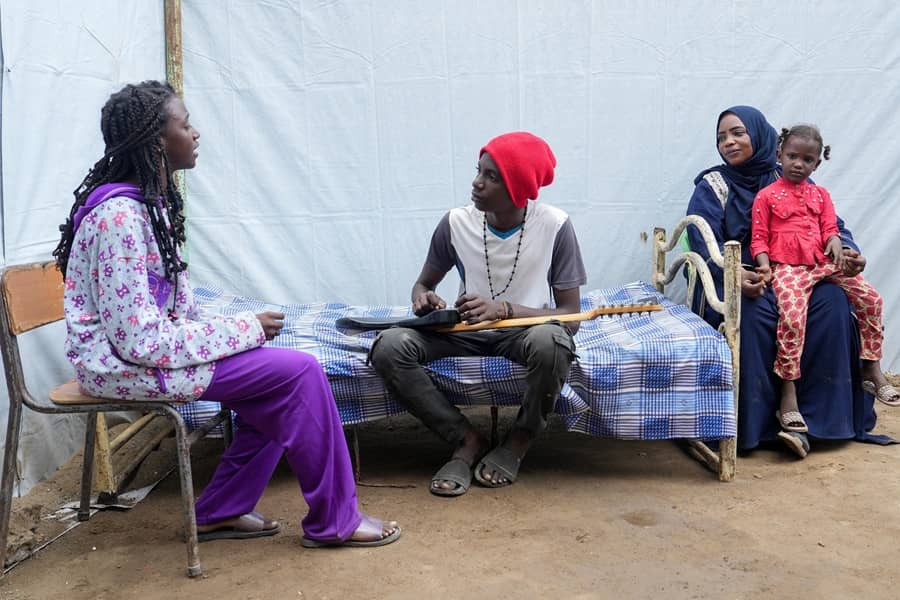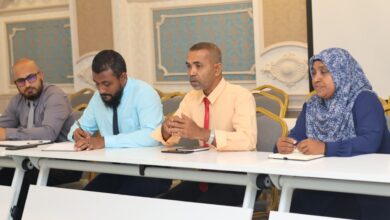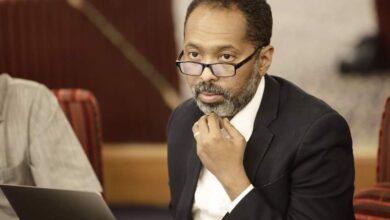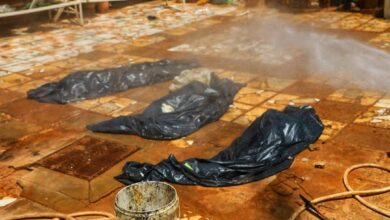
The Sudanese scene is going through a state of blockage and complexity, as solutions leading to an end to the war remain elusive, especially after the failure of all regional and international initiatives, alongside escalating tensions and internal political paralysis in offering national solutions to the crisis.
Despite the prolonged armed conflict, death, displacement, destruction of infrastructure, and the suppression of voices by both warring parties, Sudanese civil society has been active in playing significant roles and making vigorous efforts to achieve a ceasefire and bring peace to the country. This has been done through directing and drawing the attention of the international and regional communities to intervene and pressure for a solution to save the country from this dangerous descent. Civil society has also worked on raising awareness about the importance of peace and ending violence through awareness campaigns and artistic works, as well as launching popular initiatives to support those affected, prevent hunger and disease, and document violations.
Protecting Women
Tihani Abbas, Secretary-General of the “No to Oppression of Women” Initiative in Sudan, stated that “civil society, especially women’s groups, has been exemplary and played a major role since the outbreak of the war, with women organizing themselves into working groups for advocacy, humanitarian support services, documenting violations, and helping victims and survivors.”
She added that “women from various organizations called for setting a specific and common agenda to stop the war by participating in several conferences, as well as holding workshops to address issues affecting women in conflict conditions.”
Abbas explained that “around 70 Sudanese women’s organizations mobilized to demand their inclusion in the movement aimed at halting the war and achieving peace. These organizations are mainly operated by activists based in refugee capitals, particularly in neighboring countries like Uganda, Kenya, Ethiopia, and Egypt. Kampala witnessed a conference in October 2023 attended by about 50 women, who discussed women’s issues and how to address them in three phases.”
According to Abbas, the plan includes, “in the short term, protecting women from sexual violence during conflict, opening safe corridors for them, providing clean water, lifesaving medicine, and protecting female volunteers. In the medium term, it demands women’s involvement in documenting and collecting information about human rights violations, particularly sexual violence. In the long term, it calls for allocating 25% of humanitarian aid resources for women’s productive projects within conflict areas and camps, 50% of state microfinance resources for women, and 25% of funds recovered from dismantled financial institutions and corruption for women’s benefit.”
She emphasized that “the conference focused on involving women in the distribution of aid in coordination with relevant agencies, participating in peace talks, and including their vision in presented initiatives. It also called for women to have an active role in decision-making within various governmental structures.”
Abbas pointed out that “despite the suppression and detention of activists by both fighting parties and the dangers surrounding volunteer work inside Sudan, thousands continue to work tirelessly to face the challenges confronting their efforts.”
Creative Works
Similarly, Sudanese poet Alam Abbas described the war as “absurd and surreal, devoid of meaning,” noting that “creators have been working to contain it and enlighten society about its consequences through numerous artistic and cultural works. In my view, there is no winner in this raging conflict, and the greatest loser is the civilian who pays the price through death, worsening living conditions, and increasing violations.”
He added, “Most artists have done everything possible to stop the war, even though some were co-opted by the Sudanese Army and the Rapid Support Forces.”
Abbas indicated that “poets, artists, and painters have presented numerous works rejecting violence and war and calling for love and peace. New plans are in place to creatively besiege both fighting parties.”
The poet stressed that “this war has produced dangerous consequences, including the spread of racism, hatred, and rejection of the other. The worst sides of Sudanese people have emerged during the two years of conflict.”
He continued, “Escaping this quagmire requires tremendous efforts from creators, intellectuals, and scholars. Tribalism, regionalism, and contempt for others will not work; only human solidarity will unite us as Sudanese. We need to heal wounds and cultivate tolerance to harmonize Sudan’s diversity, looking at how the peoples of the world grow closer. We are destroying our country and betraying our neighbors and friends. Creatives and intellectuals must address this phenomenon.”
Overcoming Challenges
On the same note, Madani Abbas Madani, an activist in sustainable development and community empowerment, explained that “Sudanese civil society played an effective role in responding to the humanitarian situation immediately after the war erupted. Initiatives expanded across various states to ensure food security, healthcare services, and access to international organizations and target communities.”
He added, “Civil society in Sudan faces various challenges but strives to withstand them and contribute to positive changes for the cause of peace, democratic transition, development, and human rights.”
Madani noted that “the protracted nature of the war forced civil society organizations to reorganize and engage heavily in humanitarian work. Many activists moved to neighboring countries where numerous activities and dialogues took place about the necessary roles in ending the war, humanitarian work, and restoring the democratic path.”
Despite the hardships — famine threats, state fragmentation, and persecution of civil activists — Madani believes “different factors suggest that civil society can play an important role in overcoming obstacles. The youth and women’s groups’ reorganization efforts can lead to a vibrant and effective civil society that can help end the war, address humanitarian disasters, and contribute significantly to national reconstruction torn apart by the conflict.”
Inspiring Determination
Sudanese poet Azhari Mohammed Ali commented that “although the current reality is painful, we still dream of a Sudan free from killing, rape, and oppression, with a flourishing civil society agenda and a transition to democracy.”
He added, “War represents the height of ugliness, whereas peace represents virtue and beauty. Poetry, therefore, lifts us from ugliness to beauty.”
Mohammed Ali said, “Poetry invites beauty and plays an enlightening role to motivate people toward achieving great goals. The poem remains a solid barrier against violence, ugliness, and darkness.”
He called on all Sudanese creatives to “contribute to cementing peace values, preserving the unity of Sudanese society, and defending its cultural values.”
“Poets are scattered across distant lands,” he said, “but poetry and literature remain present, carrying their message everywhere, touching the collective conscience, national sentiments, and everyday life.”
He stressed that “Sudan is going through historic circumstances requiring, first and foremost, a moral responsibility to disseminate knowledge and expose falsehood.”
Betrayal and Targeting
Community activist Zakaria Al-Nou stated that “the Sudanese government views civil society




